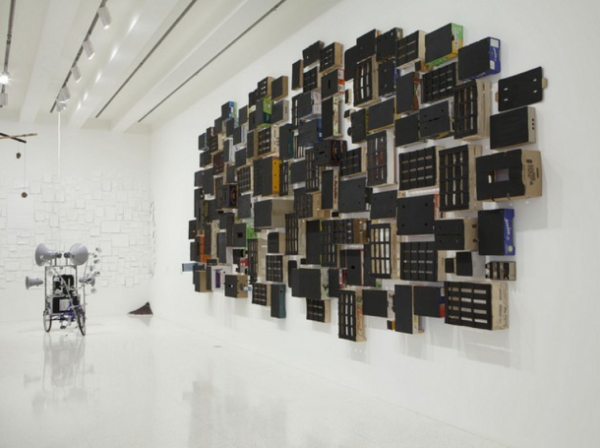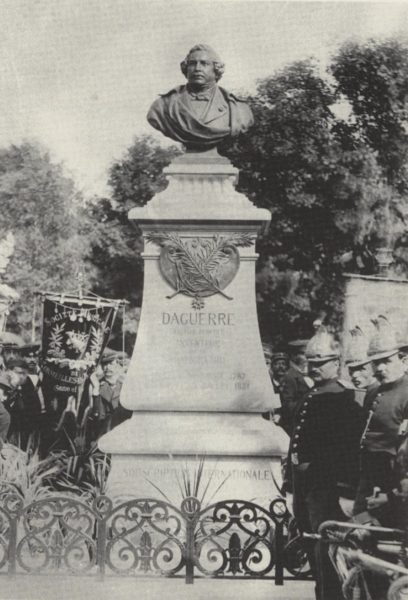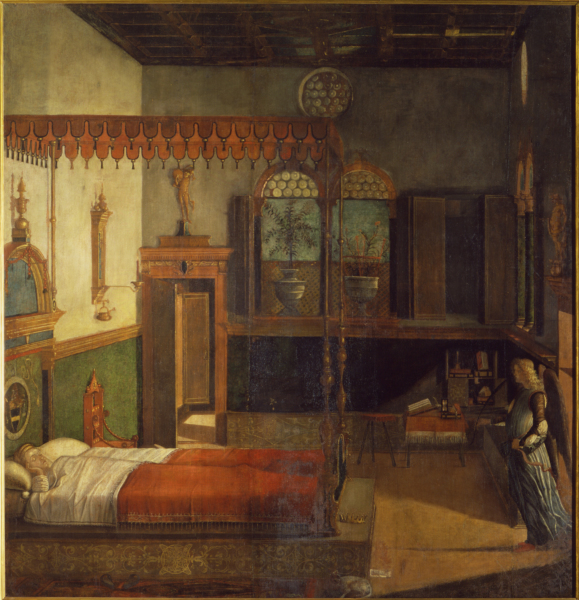Art as Seeing Through Neoliberal De-reification

The individualization of artworks was due to the ubiquity of formalist art and criticism, a sign, in Berger’s view, that art had been intimidated by the barrier between avant-garde art and the working class. This situation posits for Berger a challenge to be overcome to deliver new ways of seeing, breaking through subjective private worlds and toward democratic and collective ways of seeing.
Daguerre, Christian Prometheus

Who was Daguerre? The person who precipitated the fall of man into foul narcissism? Or the person who, by giving men mastery of divine light, offered them a path toward ultimate redemption? For his part, Daguerre seemed to be quite conscious of renewing Prometheus’s ancient feat, drawing upon it with evident pride.
Ruskin’s Broken Middle

Whenever Ruskin’s language steers toward the performative, it stages its own inability to perform. Instead emerges the quieter power of Ruskin’s constative mode—its gentle, unpossessive efficacy. Out of this come new possibilities for descriptive relation. Neither quite active or passive, the attention Ruskin’s descriptions perform might achieve a voice in some radical sense “middle,” inhabiting, however provisionally, some self-reflexive space between.
William Morris: The Poetics of Indigo Discharge Printing

Morris was thinking of the chemical events in indigo discharge printing as analogous to the actions of human history. […] The material processes of getting the dye into the fabric are correlated by him to the politics of the world’s struggles and the prospects for a future society.
Chardin’s Pastels

In this essay I want to recover not only the academic controversy surrounding the balance between real and ideal, the beau idéal and the beau réel, but also the significance of an empiricist recasting of the role of perception in cognition and its justifiability as the necessary grounds for invention.
Issue #34: Deneocolonizing?

Essays on the current state of politics in Brazil, Racial ideology in the NFL, and the prospects of Deneocolonizing the University.
Responses to Rita Felski’s Hooked: Art and Attachment

Complexity enchants ANT, new materialism, posthumanism, media studies, affect theory, and the literary undertakings of postcritique, new descriptivism, and “weak theory.” Its prophets claim as virtue that reality is immanent to itself, that no individual element of a complex web can be said to activate “a more fundamental reality” than any other. There is therefore a propulsive purpose accorded to critics: count up the everything, trace out the complexities, caress nuance, feel the vibe, what is connected to what. When everything is complicated and criticism calls itself to the tasks of phenomenological witnessing and empiricist tabulating, the vocation of criticism to make a cut in the swath of experience, to shift registers to a different order of knowing, is abandoned.
Poverty and Politics: Bolsonaro, Neoliberalism’s Authoritarian Alternative, and the Ongoing Assault on Democracy in Brazil

As the struggle against the authoritarian neoliberal regime continues to unfold, the actions of the organized labor-left in general, and the PT in particular, will be pivotal for constructing an opposition capable of defeating right-wing neoliberal authoritarianism. The heightened quality of the political conflict ahead will also challenge the way in which left and progressive forces perceive and develop political action, demanding a left capable of organizing and mobilizing resistance in multiple (institutional and non-institutional) spheres of politics simultaneously.
Ben Lerner’s Theater of Dissent

Ben Lerner’s second Adam Gordon novel, The Topeka School, offers both a genealogy of right-wing political speech and, presumably, an alternative. But insofar as the novel’s politics culminate in political theater, that alternative is reduced to the politics of the status quo. The Topeka School, and those critics for whom its success rises or falls on its ability to provoke aesthetic experience, conflate political experience and political action. While no work of art is likely to do the work of dismantling structures of inequality for us, the work of art that asserts its irreducibility to the “inflexible laws” of the political status quo, and our experiences of it, might provide a new way of seeing or imagining it together—something that the attention to aesthetic and political experience alone cannot do.
Deneocolonize Your Syllabus

It hardly needs saying that the term “decolonize” once meant something wholly different than it does now. To put it not a little too bluntly, in the heyday of the anticolonial movement it was the colonies and the colonized that needed decolonizing, not the colonizers, but now even that need, as we like to say, has been “colonized.” Of course we understand that the “decolonize” in the slogan “decolonize your syllabus” is metaphorical, that it means diversify or “decenter” (as we also like to say), but that does little to allay the fact that, formally, rhetorically, it collapses the distinction between colonizer and colonized. Sometimes, decentering oneself and one’s syllabi means little more than absolving oneself of accountability for the colonial past. Just to give it a name, we might call this phenomenon “colonial narcissism.”


